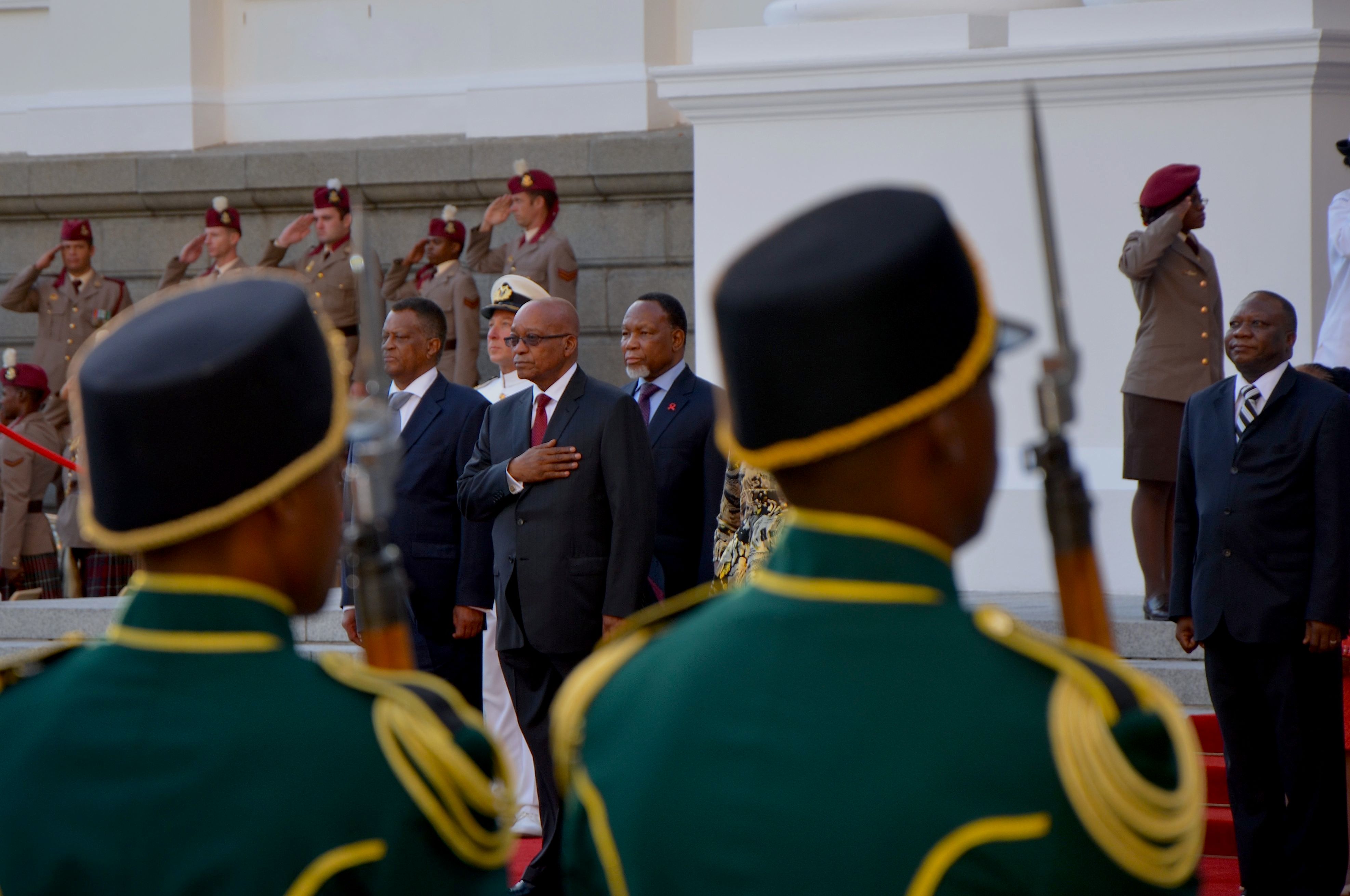
Early on in his State of the Nation Address (SONA) last night, President Jacob Zuma made mention of the institutions that check and balance our democracy:
“We have Chapter 9 institutions which support democracy and protect the rights of citizens. The liberations have also created space for an active civil society,”
After the address, People’s Assembly caught up with Public Protector Thuli Madonsela to ascertain her reaction to this considering the obvious omission to the scandal surrounding the cost of refurbishments to Zuma's homestead and the recent investigation of the N-word - as that ungovernable puppet Chester Missing put it - done by Madonsela’s office.
“I think the fact that he mentioned Chapter 9s as part of the pillars of democracy is something we should be encouraged by. It was a speech that tried to deal with what has happened in the last twenty years and the last five years so of course there will be omissions. However the issues we deal with as Chapter 9s was mostly dealt with, such as maladministration and anti-corruption,” Madonsela said.
In his address, Zuma said since the launch of the anti-corruption hotline, government has recovered more than 320-million rand from perpetrators and that over 13 000 corruption and maladministration cases referred to government for investigation.
Madonsela went on to add “I think the hotline is doing something commendable because there has to be a mechanism that ensures there is no impunity. What I would like to see going forward though is mentioning of all of the institutions that are playing a role in ending corruption so that people understand we are a multi-agency country, the public protector plays a role, the auditor general, the public service commission… they don’t compete, they work together”.
Another subject flagged by the President was that of women’s rights. As well as expressing concern around “the acute under representation of women on bench… of 239 judges, only 76 are women”, President Zuma also singled out and thanked the "many NGOs that promote the rights of women and children”.
People’s Assembly’s ears pricked up at this point due to the incredibly high levels of violence against women plaguing South Africa, but also the controversy surrounding Women’s Empowerment and Gender Equality (WEGE) bill, currently before parliament, in particular.
Lance Greyling, sporting an independent democrat orange hued shirt, told People’s Assembly, “I think it is positive that he praised the work that civil society and specifically NGOs in the women’s sector do in South Africa because often they are in fact doing work that the state has an obligation to do. The point, however, is whether he is prepared to resource them to the extent that they need to do the important work that they do and that hasn’t necessarily been forthcoming”.
The other two big issues that reared their heads were that of violent service delivery protests and labour unrest in the mining sector, with the latter seeing President Zuma stray from his speech and go off the cuff.
People’s Assembly asked Mr Greyling what he thought about the way President Zuma handled the sensitive matter of strained government-union relations in what is his second State of the Nation Address since the Marikana massacre?
Greyling said “If we can get something out of the current crisis it would be to form a new type of contract between unions, business and government as a way of lifting up the mining sector, and creating meaningful employment and proper remuneration and its clearly something we all can work towards and it's great that he expressed that sentiment but the real difficulty is how do we do that considering the polarized situation we seem to have got ourselves into”.
Later Zuma also stated he was concerned about the use of "premeditated violence" such as use of petrol bombs that SA has seen in recent protests and also while “any loss of life at hands of police in protests cannot be condoned… as we hold the police to account, we should be careful not to end up delegitimizing them and glorify anarchy in our society”.
The issue of heavy-handed responses by the police aside, Western Cape Premier Helen Zille said she did not think Zuma went into the causes of the violent service delivery protests.
“I think he was rationalizing them. There is a crisis of rising expectation and things are not necessarily getting better, for example there isn’t any water in Brits. It's not that 5% don’t have water and 95% do, it's that the water is cut off for three months at a time and other various examples of that, where people had services before and they have been taken away” Zille said.


Comments
Keep comments free of racism, sexism, homophobia and abusive language. People's Assembly reserves the right to delete and edit comments
(For newest comments first please choose 'Newest' from the 'Sort by' dropdown below.)